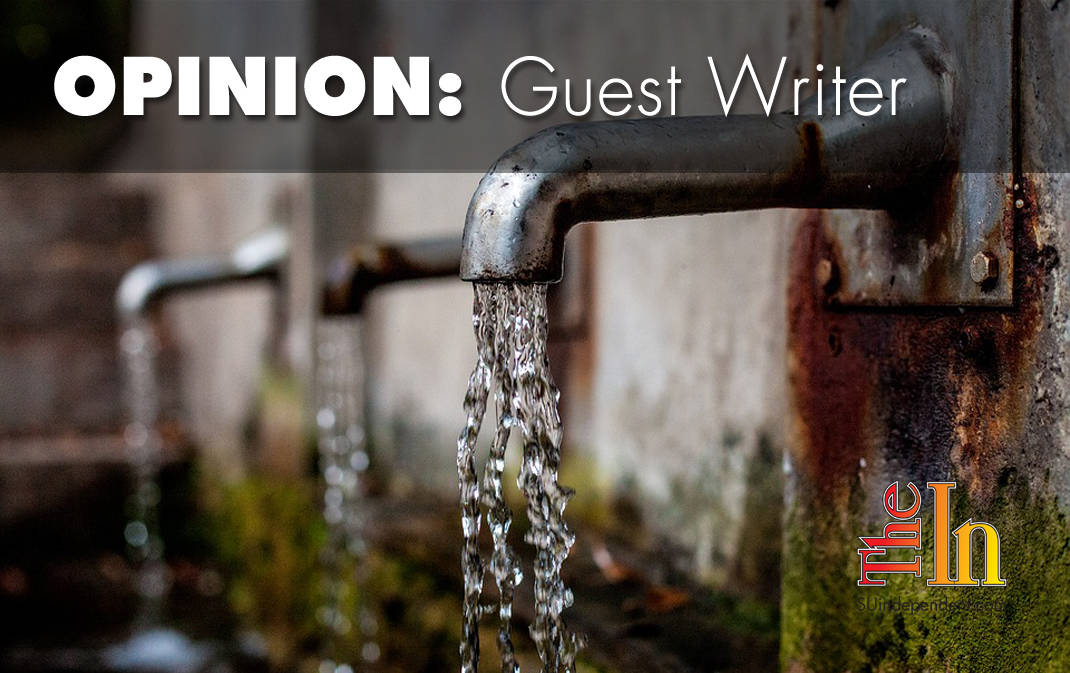 By Lisa Rutherford
By Lisa Rutherford
For 11 years, Washington County’s grassroots conservation organization, Conserve Southwest Utah, has been studying the proposed Lake Powell Pipeline Project, a plan that would pipe water from Lake Powell via a 139-mile pipeline to Washington County. Conserve Southwest Utah’s knowledge of the project is extensive, and its activities have included reviewing 22 study reports produced by the State of Utah about the project and commenting on those reports to the Federal Energy Regulatory Commission, the agency heading the project at the federal level. Conserve Southwest Utah has produced a white paper defining its position on the proposed project and water generally so citizens can gain a better understanding of this project, the challenges it presents, and what “water opportunities” we have.
In addition to the 30-page white paper, Conserve Southwest Utah has produced a condensed version called the LPP Update Winter 2017, which hits the high points of the larger document. The LPP Update explains that we have plenty of water for growth, and we need to use existing supplies more efficiently. It reveals less expensive but effective alternatives to the Lake Powell Pipeline and encourages conservation first before relying on an unsustainable water supply from the Colorado River.
The LPP Update was produced in partnership with the Taxpayer Association of Kane County. It was sent to Utah’s legislators, the governor’s office, and all local officials in the county in hopes that they would read and consider this alternative information. The information is in opposition to the position held by most state and local officials, who have been convinced by the State Division of Water Resources and our local Washington County Water Conservancy District that the pipeline is the answer for the long-term future supply for our county.
The project concept began in the mid ‘90s, and in 2006, the Lake Powell Pipeline Act was passed, making it an official state project. Since then, state and local officials have been wedded to the project with little interest in considering alternatives.
Problems identified in the LPP Update include the questionable and elusive repayment options that have been challenged by more than 20 prominent Utah economists, the lack of real need for the water, and the lack of accurate usage data — a deficiency which promotes the questionable need. The update also delves into reasons for Washington County’s extremely high water usage and raises questions about population projections for the county and how much water that population would require. The issue of how much water we really have and how far it will go to support our county’s growth is covered in detail. Finally, it addresses the reliability of the Colorado River, given the effects of climate change and the questionable reliability of the Lake Powell Pipeline’s 1957 junior “water right” — a right that might, not necessarily would, supply water to a permanent water project. By law, Washington County and Kane County taxpayers must repay the Lake Powell Pipeline’s cost.
The update notes that unlike most other places, residents’ property tax bills include taxes paid to the Washington County Water Conservancy District. This practice effectively hides the true cost of water by bundling it with other taxing entities and is a major driver for the overuse of water in our county, driving the perceived need for the Lake Powell Pipeline. When people don’t know the true cost of water as revealed in a monthly bill showing how much they use and what that use costs, the value of water is lost. Over 50 percent of the cost of our water is paid in property taxes.
A bill, SB151, was run in the legislature this year and attempted to help resolve the problem by providing that property tax collections of certain water conservancy districts may not exceed a specific percent of their revenues with certain exceptions. Beginning on July 1, 2020, districts would have been restricted in their property tax collections to not exceed 15 percent of their total annual revenues with exceptions as noted above and detailed in the bill text. However, the bill was killed in the Senate Natural Resources, Agriculture and Environmental Committee after a robust discussion with water districts weeping and gnashing teeth over their revenues and operations being negatively impacted. One must wonder how water providers elsewhere manage and are more creative in their operational practices, allowing them to realize significant conservation and better use of their precious water resources without property-tax money.
Citizens would do well to review the LPP Update and, if time allows, the entire white paper for important details on the Lake Powell Pipeline project and water in our community.
Lisa Rutherford serves as an advisor to Conserve Southwest Utah and is a resident of Ivins.
Articles related to “LPP Update provides details on Lake Powell Pipeline”
OPINION: Water and the cost of convenience over conservation



